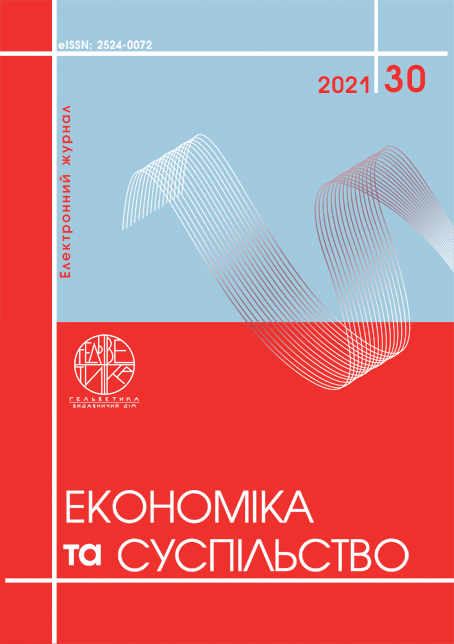FORMALISATION OF SECONDARY EDUCATION FINANCING IN THE CONTEXT OF DECENTRALISATION AND THE ROLE OF LOCAL COMMUNITIES IN FINANCING SCHOOLS
Abstract
This article is a review of formula funding. It addresses two basic questions: 1) What formula funding schemes for schools exist and how they are used; and 2) How formula funding methods for schools meet the standards. Formula funding for schools, as opposed to administrative funding – relies on a mathematical formula, contains a number of variables (e.g., number of students), each of which has a monetary amount tied to it to determine school budgets. There are two main groups of variables in such formulas: 1) based on number of students and grade level success; and 2) based on need. The effectiveness of formula funding compared to alternative funding regimes depends on the details of the formula and on educational policy. Formula funding systems typically promote transparency and accountability at low administrative costs, and when combined with appropriate additional policy tools, they can also promote equity and efficiency. There are several debates going on right now: first, there is a tradeoff between transparency/ease and local sensitivity/complexity. Second, determining how much it costs to teach to a certain standard is problematic and controversial. The main reason for this is that the relationship between education costs and student achievement is largely unknown, and the impact identified is relatively small. Because of the proliferation of formula funding, an extensive academic literature has developed over the past two decades. While much of the literature is specific to national contexts and contributes to the domestic issues of specific countries, there are a small number of studies for general application. The latter, however, remain largely descriptive and only cover evaluation issues very briefly or address specific issues such as corruption. As a consequence, there is very little comparative work on how formula financing methods are evaluated according to different standards. For the most part, the issue has been studied only in EU member states. Much attention is given to countries with extensive experience in evaluating formula finance regimes, such as the US, the UK, Australia, and New Zealand. But unfortunately, developing countries do not take up the issue of the study, which provides difficulties in their educational development.
References
Transforming our world: the 2030 Agenda for Sustainable Development / The General Assembly of United Nations. 2015. September. URL: http://www.un.org/ga/search/view_doc.asp?symbol=A/70/L.1&Lang=E
Каленюк І.С. Економіка освіти : Навчальний посібник. Київ : Знання України, 2003. 102 с.
Ларіонова М.В. Актуальні питання розвитку освіти в країнах ОЕСР : посібник. Москва : Будинок ГУ ВШЕ, 2005. 149 с.
Гаврилюк Р.В. Основи управління школою : книга. Київ : Освіта, 2007. № 2.
Fullan M. Change forces: Probing the Depths of Educational Reform. London : The Falmer Press, 1993.
Застрожнікова І.В. Принципи децентралізації в управлінні освітою. Науковий вісник: Державне управління. 2019. № 2. С. 59–65.
Пінчук Є.А. Генезис поняття і сутності модернізації освіти. Вісник Київського національного університету імені Тараса Шевченка. Серія: Філософія. Політологія. 2009. Вип. 92. С. 29–35.
INCA Education around the World. USA: Organisation/control of education system. 2.1 Organisation and control of system/structure – London. INCA, QCA, NFER. URL: http://www.inca.org.uk/1332html
Фінансування освіти: скільки, кому і як? URL: http://www.euroosvita.net/index.php/?category=1&id=4879
Освіта для сталого розвитку. Освіта і наука на порозі третього тисячоліття: Тезис. Міжн. Конгресу. URL: http://www.unesco/org/education/desd
Юрченко М. Особливості функціонування сучасної шкільної освіти в Іспанії: науковий журнал. Київ : Ін.-т педагогіки НАПН України, 2011. С. 65–75.
Transforming Our World: The 2030 Agenda for Sustainable Development / United Nations General Assembly. 2015. September. Available at: http://www.un.org/ga/search/view_doc.asp?symbol=A/70/L.1&Lang=E
Kalenyuk I.S. (2003) Economika osvity [Economics of education]. Kyiv: Znannya Ukrainy.
Laryonova M.V. (2005) [Actualities of the development of education in the OECD countries: handbook]. Moscow: GU HSE Budynok, 149 с
Gavriluk R.V. (2007) Osnovy upravlinnia shkoloiu : knyha [Fundamentals of school management: a book]. Kyiv: Osvita.
Fullan, M. (1993) The Forces of Change: Probing the Depths of Educational Reform. London: Fulmer Press.
Zastrozhnikova I.V. (2019) Pryntsypy detsentralizatsii v upravlinni osvitoiu [Principles of decentralization in education management]. Scientific Bulletin: Public Administration, 2, 59–65.
Pinchuk E.A. (2009) Henezys poniattia i sutnosti modernizatsii osvity [Genesis of the concept and essence of modernization of education]. Kyiv National Taras Shevchenko University. Series: Philosophy. Politology, 92, 29–35.
INCA Education Around the World. U.S.: Organization/control of the education System. 2.1 Organization and control of the system/structure. London. INCA, QCA, NFER. Available at: http://www.inca.org.uk/1332html
Financing Education: how much, to whom, and how? Available at: http://www.euroosvita.net/index.php/?category=1&id=4879
Education for Old Development. Education and Science on the Threshold of the Third Millennium: Abstract. International. Congress. Available at: http://www.unesco/org/education/desd
Yurchenko M. (2011) Osoblyvosti funktsionuvannia suchasnoi shkilnoi osvity v Ispanii: naukovyi zhurnal [Peculiarities of functioning of school education in Spain: A scientific journal]. Kyiv: Institute of Pedagogy NAPN of Ukraine.


